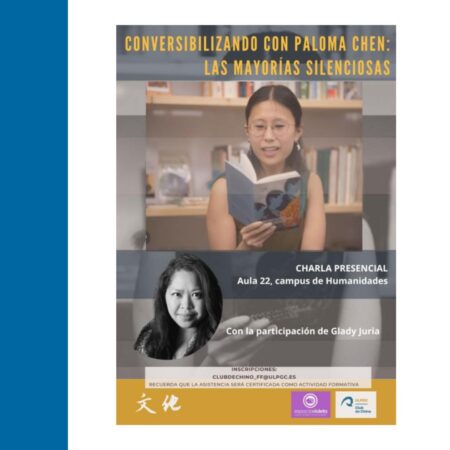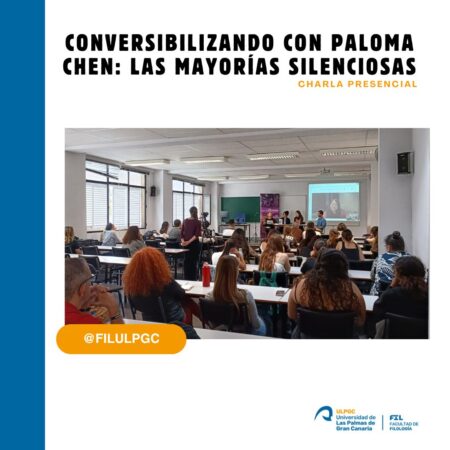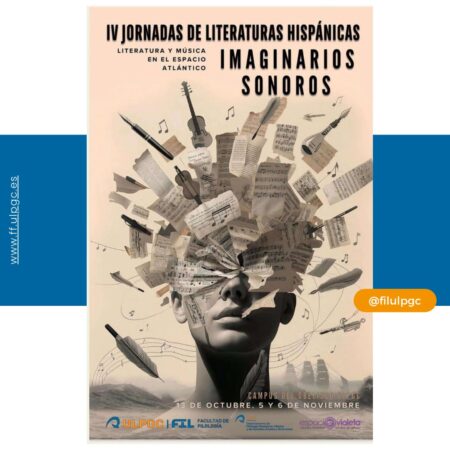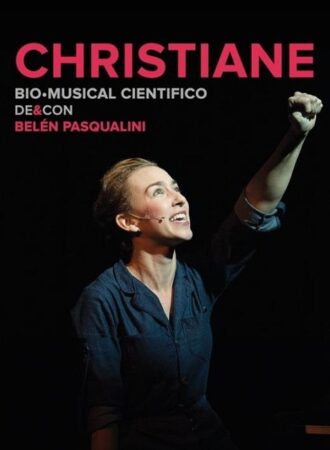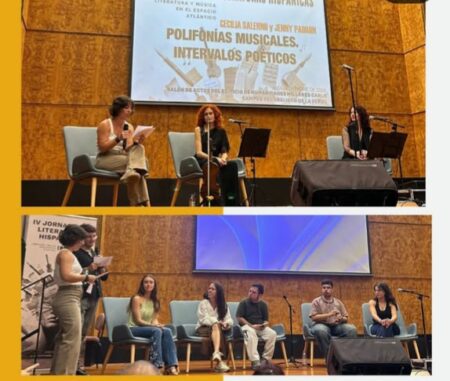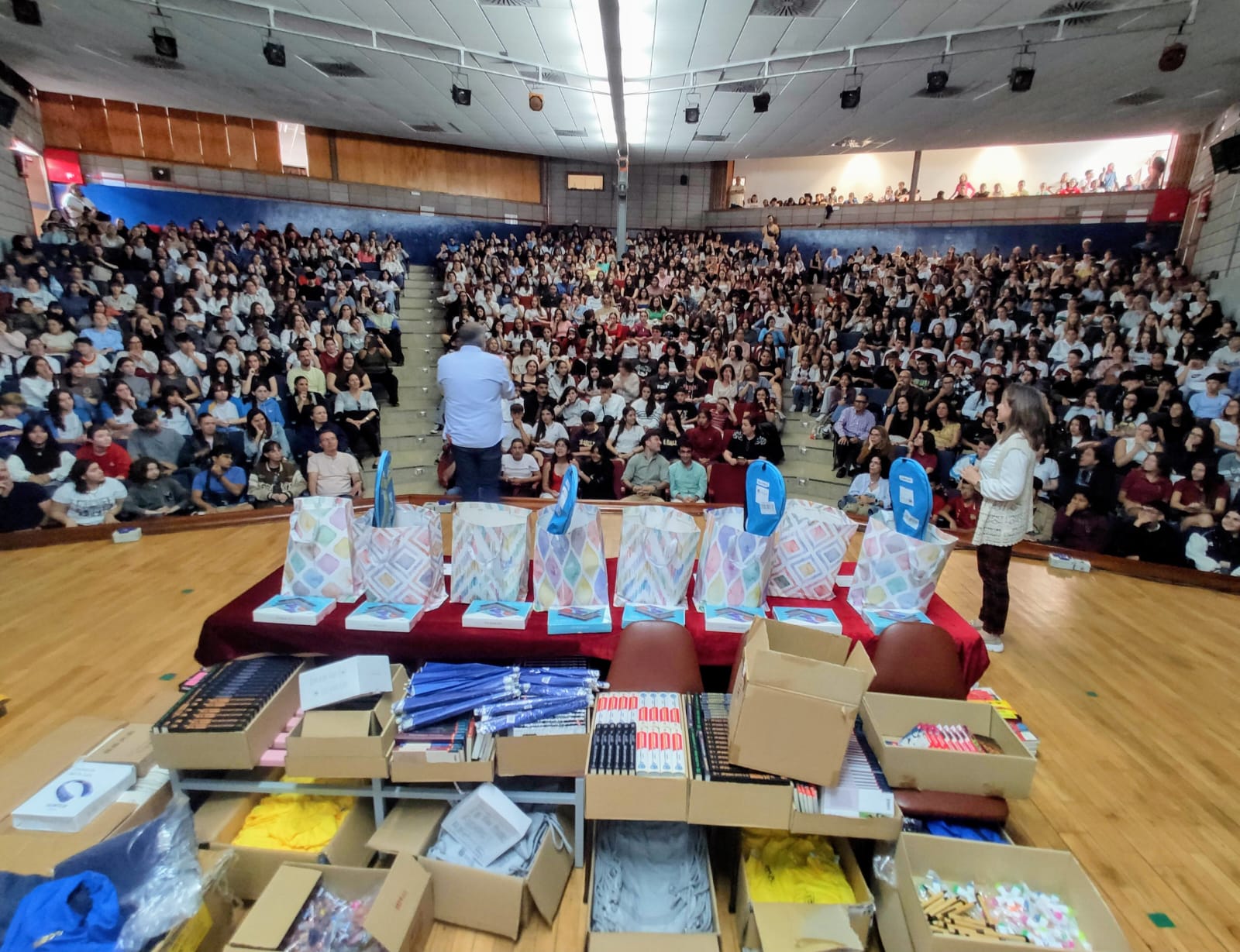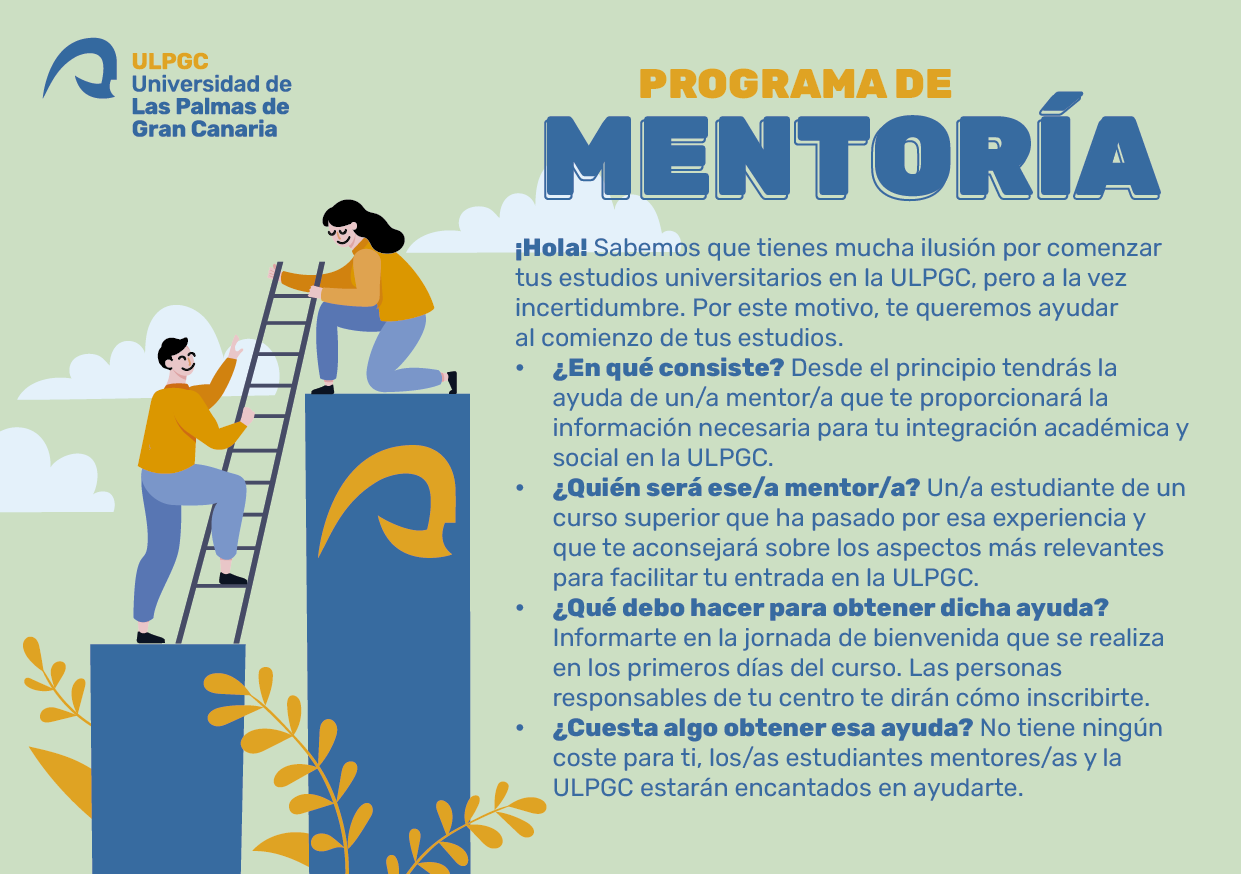Gloria Oliva, Pedro Flores y Berbel abren esta nueva edición con una charla y una lectura poética. El artista gráfico Óscar Valido hace un recorrido por su producción de poesía visual.
Tres poetas, tres maneras de concebir la palabra poética. De ello nos hablarán este jueves, 23 de noviembre, a las 11 h, en el salón de actos de la Facultad de Ciencias de la Educación. Y no solo hablarán, sino que, a través de sus poemas, podremos entender por qué la creación poética es única. Tras esta lectura, le tocará el turno a Óscar Valido, cuyos poemas visuales no dejan indiferente a nadie.
Gloria Oliva ha irrumpido en el panorama literario insular recientemente. De escritura tardía, la escritora cuenta ya en su haber con los premios de poesía Tomás Morales (2021) y Pedro García Cabrera Cajacanarias (2023).
Pedro Flores es uno de los poetas más relevantes de su generación y su obra ha merecido la atención de la crítica. Entre los galardones que ha recibido, destacan el Premio Nacional José Hierro (2017), los internacionales Jorge Manrique, Poesía Generación del 27 (ambos en 2022) o el Miguel Hernández (2023).
Berbel es una artista polifacética y desinquieta, cuya larga trayectoria ha involucrado a muchas personas en torno al acto de la creación (su última aventura es el libro Palabras para todas, con la participación de 150 escritores). Ha recibido, entre otros, el Premio Internacional Ciudad de Las Palmas (2005) y en 2021 fue nombrada Hija Adoptiva de Gran Canaria.
Óscar Valido es un diseñador gráfico que ha realizado diversas exposiciones e impartido talleres de poesía visual. Su herramienta es el collage digital con el que crea metáforas visuales en el que los objetos cotidianos se relacionan para crear una nueva e imaginativa realidad. Si quieres ver algo de su trabajo, les dejamos este vídeo de RTVE.
English version (click here)
The II Days of Literature Begin this November 23
Gloria Oliva, Pedro Flores and Berbel open this new edition with a talk and a poetic reading. Graphic artist Óscar Valido takes a tour of his production of visual poetry.
Three poets, three ways of conceiving the poetic word. They will talk us about it this Thursday, November 23, at 11 am, in the auditorium of the Faculty of Education Sciences. And not only will they speak, but through their poems, we can understand why poetic creation is unique. After this reading, it will be the turn of Oscar Valido, whose visual poems leave no one indifferent.
Gloria Oliva has recently appeared on the island’s literary scene. Late in writing, the writer already has under her belt the poetry prizes Tomás Morales (2021) and Pedro García Cabrera Cajacanarias (2023).
Pedro Flores is one of the most important poets of his generation and his work has deserved the attention of critics. Among the awards he has received, include the José Hierro National Prize (2017), the international Jorge Manrique, Poesía Generación del 27 (both in 2022) or the Miguel Hernández (2023).
Berbel is a multifaceted and non-stop artist, whose long career has involved many people around the act of creation (her latest adventure is the book Palabras para Todas, with the participation of 150 writers). She has received, for example, the International Award Ciudad de Las Palmas (2005) and in 2021 was named Adopted Daughter of Gran Canaria.
Oscar Valido is a graphic designer who has made various exhibitions and taught visual poetry workshops. His tool is the digital collage with which he creates visual metaphors in which everyday objects relate to create a new and imaginative reality. If you want to see some of his work, we leave this video of RTVE.
